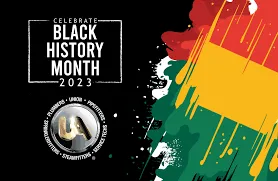Shuler: 'Black history is labor history'

By BERRY CRAIG
AFT Local 9005
"Black history is labor history and Black workers have always been a crucial part of the fight for justice in the labor movement: from helping to organize the meatpacking industry to the Pullman strike to the sanitation workers striking in Memphis to the countless other efforts and actions throughout our movement," AFL-CIO President Liz Shuler said in a statement on Feb. 1, the first day of Black History Month.
Dr. Martin Luther King Jr., who helped lead the civil rights movement in the 1950s and 1960s, viewed the civil rights and labor movements as natural allies.
“As I have said many times, and believe with all my heart, the coalition that can have the greatest impact in the struggle for human dignity here in America is that of the Negro and the forces of labor, because their fortunes are so closely intertwined,” King explained.
Shuler added: "And being in a union makes a tangible difference in Black workers’ lives—Black union members earn 13.1% more than their Black peers who are not in a union and have better benefits, more job security and safer workplaces."
Dr. King was also a student of labor history. In 1965, the 30th anniversary of the landmark Wagner Act, he pointed out that when the 20th century turned, “women earned approximately 10 cents an hour, and men were fortunate to receive 20 cents an hour. The average work week was 60 to 70 hours.”
He added, “During the thirties, wages were a secondary issue; to have a job at all was the difference between the agony of starvation and a flicker of life. The nation, now so vigorous, reeled and tottered almost to total collapse. The labor movement was the principal force that transformed misery and despair into hope and progress.
“Out of its bold struggles, economic and social reform gave birth to unemployment insurance, old-age pensions, government relief for the destitute and, above all, new wage levels that meant not mere survival, but a tolerable life. The captains of industry did not lead this transformation; they resisted it until they were overcome. When in the thirties the wave of union organization crested over our nation, it carried to secure shores not only itself but the whole society.”
He warned that enemies of racial justice were also enemies of unions: “The labor-hater and labor-baiter is virtually always a twin-headed creature spewing anti-Negro epithets from one mouth and anti-labor propaganda from the other mouth.”
He denounced “right to work” laws for the scam they are: “In our glorious fight for civil rights, we must guard against being fooled by false slogans, such as ‘right to work.’ It is a law to rob us of our civil rights and job rights.
“Its purpose is to destroy labor unions and the freedom of collective bargaining by which unions have improved wages and working conditions of everyone.…Wherever these laws have been passed, wages are lower, job opportunities are fewer, and there are no civil rights. We do not intend to let them do this to us. We demand this fraud be stopped. Our weapon is our vote.”